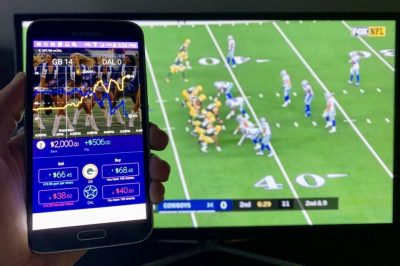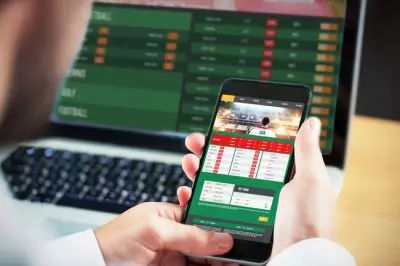 The sports betting application BallStreet is changing the direction, by slowly turning to politics and competitive video games following the global coronavirus pandemic resulted in postponement or cancellation of many of the sports leagues and events that constitute its main business. The change in the app illustrates a number of larger trends in the quickly-evolving mobile sports betting sector.
The sports betting application BallStreet is changing the direction, by slowly turning to politics and competitive video games following the global coronavirus pandemic resulted in postponement or cancellation of many of the sports leagues and events that constitute its main business. The change in the app illustrates a number of larger trends in the quickly-evolving mobile sports betting sector.
It was Scott San Emeterio, an ex-financial trader, who came up with the idea for the BallStreet application as a way to bring some aspects of trading experience to a recreational activity. Mr. San Emeterio explained that the app is aimed at serving as a connection between sports and finance. For the time being, Ball Street has attracted about 16,000 users, but insiders have noted that customers’ sessions are about 45 minutes long, suggesting they like the application.
The founder and owner of the sports betting app is funding BallStreet himself. Mr. San Emeterio creates prediction markets for sporting events, with trading sessions taking place during the games. BallStreet customers are given 100 shares of each team in a contest to begin the game with and are allowed to trade them based on the development of the game. The ones who hold the largest number of shares of the winning team at the end of the event emerge as winners.
Mobile Gambling and Trading Has Ben Thriving in the Last Few Years
 Currently, customers are not required to pay entry fees to start using the sports betting application, which comes as an exemption from rules regarding online gambling services. BallStreet app pays winners between $2 and $5 per contest, and the long-term plans of the application’s owner are first to expand the customer field and then license the game to operators that could start offering it as a more traditional gambling app.
Currently, customers are not required to pay entry fees to start using the sports betting application, which comes as an exemption from rules regarding online gambling services. BallStreet app pays winners between $2 and $5 per contest, and the long-term plans of the application’s owner are first to expand the customer field and then license the game to operators that could start offering it as a more traditional gambling app.
At first, basketball games and golf tournaments have been the most obvious targets. However, the coronavirus pandemic outbreak made Mr. San Emeterio adjust the initial idea, with him starting to add esports tournaments to the wagering app’s offering. This summer, he even provided the application’s users with the chance to predict who would be elected as the nominee for vice president from the Democratic party.
The last few years have offered a variety of smartphone and web-based alternatives to traditional sports betting, with many of them being focused on attracting younger audiences and people who may be unwilling to use regular sports betting services. On the other hand, the changes within the market also seem to draw attention to not so typical options to bet on, such as politics, and proponents of the new options say they could even outperform public polling in some situations.
According to Mr. San Emeterio, the prediction market such as some of the options provided by his BallStreet app could provide useful forecasting. Still, he has revealed that he was willing to see BallStreet do something that regular betting markets are not able to do so far – expand beyond so-called “casual fans” of video games to attract professional gamblers.